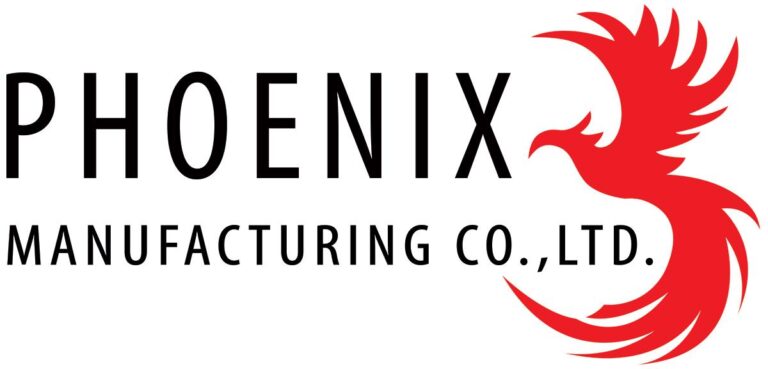Phoenix has secured its place as the No. 3 best metropolitan area for manufacturing in the United States, according to a recent report by AZ Big Media. The cityŌĆÖs robust industrial ecosystem, skilled workforce, and strategic location have contributed to its rise as a leading hub in the manufacturing sector. This recognition highlights PhoenixŌĆÖs growing significance within the national market and underscores the continued investment in the regionŌĆÖs economic development.
Phoenix Emerges as a Manufacturing Powerhouse in the U.S. Metro Landscape
Phoenix has rapidly ascended the ranks to become one of the nationŌĆÖs premier hubs for manufacturing, securing its spot as the third-best metropolitan area in the United States. This milestone reflects the cityŌĆÖs strategic investments in infrastructure, workforce development, and technology innovation, which have collectively attracted a diverse range of manufacturing sectors. From aerospace components to advanced electronics, PhoenixŌĆÖs industrial landscape is marked by resilience and growth, drawing significant interest from national and international companies seeking a dynamic production environment.
Key factors driving PhoenixŌĆÖs manufacturing boom include:
- Robust transportation networks enabling efficient distribution and supply chain management;
- A skilled labor pool supported by local universities and technical institutes;
- Business-friendly policies encouraging innovation and investment;
- Access to technology and clean energy resources fueling sustainable manufacturing initiatives.
| Manufacturing Sector | Growth Rate (2023) | Key Employers |
|---|---|---|
| Aerospace | 8.5% | Honeywell, Boeing |
| Electronics | 7.2% | ON Semiconductor, Microchip |
| Automotive Components | 6.3% | Magneti Marelli, Valeo |
Key Drivers Behind PhoenixŌĆÖs Manufacturing Sector Growth
PhoenixŌĆÖs surge in manufacturing is largely fueled by its strategic location and robust infrastructure. The metro area serves as a critical logistics hub, connecting production lines with major markets across the southwestern U.S. and Mexico. This advantage is complemented by significant investments in transportation networks, including upgraded highways, extensive rail systems, and a major international airport. These factors ensure that manufacturers can streamline supply chains and reduce distribution costs, enhancing overall competitiveness.
Additionally, Phoenix benefits from a skilled workforce and pro-business policies that drive manufacturing expansion:
- Strong presence of technical training programs aligned with industry needs
- Tax incentives and grants aimed at attracting and retaining manufacturers
- Growing innovation hubs focused on advanced manufacturing technologies
- Supportive state and local economic development agencies
| Key Driver | Impact |
|---|---|
| Strategic Location | Facilitates efficient logistics and market reach |
| Workforce Training | Ensures availability of skilled labor and innovation |
| Business Incentives | Attracts investment and accelerates sector growth |
Challenges Facing Phoenix Manufacturers and Strategies for Overcoming Them
Manufacturers in Phoenix are navigating a complex landscape marked by rising operational costs, labor shortages, and supply chain disruptions. Escalating raw material prices and transportation bottlenecks have squeezed profit margins, while the fierce competition for skilled workers has made talent acquisition a pressing issue. Further complicating matters, companies must continually adapt to evolving regulatory requirements and environmental standards, adding layers of compliance challenges that require strategic foresight and investment.
To address these hurdles, local manufacturers are embracing innovative solutions and collaborative approaches. Investments in automation and workforce training programs are helping to mitigate labor deficits and boost productivity. Additionally, many firms are diversifying supplier networks and leveraging advanced supply chain analytics to increase resiliency. Support from public-private partnerships and targeted incentives enhances their capacity to scale sustainably. The table below highlights key challenges alongside impactful strategies employed by Phoenix manufacturers:
| Challenge | Strategy | Impact |
|---|---|---|
| Labor Shortages | Skills training & automation | Higher productivity |
| Supply Chain Disruptions | Diversified suppliers & analytics | Improved resiliency |
| Rising Costs | Energy efficiency upgrades | Reduced overhead |
| Regulatory Compliance | Dedicated compliance teams | Risk mitigation |
Recommendations for Sustaining PhoenixŌĆÖs Manufacturing Momentum
To maintain PhoenixŌĆÖs rapid manufacturing growth, itŌĆÖs essential to prioritize a skilled workforce ready for evolving industry demands. Local leaders and businesses should collaborate closely with educational institutions to develop specialized training programs, apprenticeships, and certification pathways. Investing in STEM education and advanced manufacturing technologies will empower employees to drive innovation and keep the region competitive on a national scale.
Equally critical is fostering a business environment conducive to sustainable growth. This includes incentivizing clean energy adoption, streamlining supply chain logistics, and enhancing infrastructure resilience. Key strategies involve:
- Expanded tax credits for manufacturers embracing green technologies
- Public-private partnerships to improve transportation networks
- Smart zoning policies that support industrial expansion without compromising residential needs
| Focus Area | Action Item | Expected Outcome |
|---|---|---|
| Workforce Development | Apprenticeships & STEM programs | Greater talent retention |
| Infrastructure | Improve logistics & transport | Reduced operational costs |
| Sustainability | Incentives for green tech | Lower carbon footprint |
Concluding Remarks
As Phoenix continues to rise as a top-tier manufacturing hub, its position as the No. 3 best U.S. metro for manufacturing underscores the cityŌĆÖs growing economic clout and industrial innovation. With a combination of skilled labor, strategic location, and investment in advanced technologies, Phoenix is poised to maintain its momentum and further solidify its role in the nationŌĆÖs manufacturing landscape. Stakeholders and industry leaders alike will be watching closely as the metro area leverages these strengths to drive future growth and opportunity.







